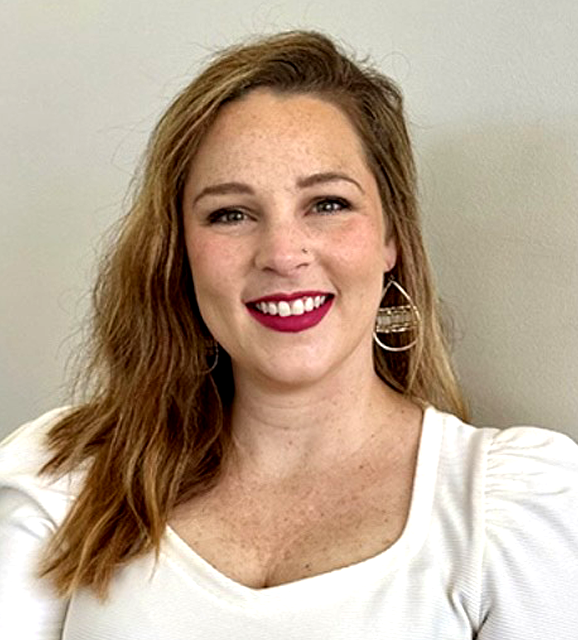Coping with Infertility: Setting Boundaries
Infertility is an incredibly personal and emotional journey and navigating it can feel like a rollercoaster of emotions, pushing us to feel in more “extremes” than we are used to feeling. One of the most challenging aspects of infertility is managing how much to share with others about our experience. Whether it’s family, friends, or acquaintances, everyone seems to have opinions, advice, and questions, and though often well-intentioned, its sometimes overwhelming, and occasionally…invasive! During this time, it’s crucial to set healthy boundaries to protect your emotional well-being AND protect important relationships.
Setting boundaries isn’t about shutting people out; it’s about taking care of yourself and keeping relationships healthy. Infertility can leave you feeling vulnerable, and it’s easy to become drained by conversations that bring up emotions you’re not ready to deal with or don’t wish to revisit. Establishing your own parameters helps you regain control over who knows what, how much you share, and when you’re willing to talk about it.
Without boundaries, you might find yourself overwhelmed by unsolicited advice, uncomfortable questions, or personal stories that don’t help and potentially come across as insensitive. On top of the emotional toll infertility already takes, these external pressures can add to feelings of isolation, stress, and even frustration.
Why Boundaries, and Do I Need Them?
Them?
Take time to reflect on what you need in each conversation. Your boundaries might look different depending on the person you’re talking withand that’s okay! Are you open to talking about your fertility journey, or do you need a break? Trust your feelings and give yourself permission to say, “I’m not ready to talk about that right now.” Sometimes, just the act of acknowledging your emotions can guide you in deciding when it’s time to set boundaries.
Once you’ve identified your emotional needs, express them clearly to the people around you. This can be as simple as saying, “I’m still processing everything and don’t feel in a place to talk about it right now,” or “I appreciate your concern, but I need some time to process things before talking about it.” It’s okay to be direct and firm about what you’re not ready to share. Being direct and firm about when you’re setting a boundary doesn’t mean you’re not being kind.
Sometimes, well-meaning people may ask intrusive questions or offer advice without realizing it’s not helpful. A lot of people experiencing infertility have gotten feedback about the “friend’s cousin’s neighbor who struggled to get pregnant then took a vacation and magically came back pregnant…so just relax!” [Insert frustrated SCREAM!] So how do we respond to that?
Try responding with something like, “I appreciate your concern, but it’s more complicated than that for me right now,” or, “I’m not ready to share details at this point.” The more you practice these responses, the easier it becomes to set those boundaries when needed. Also, what sounds natural to you is going to be different for every single person.
Being Clear About the Support You Need
Instead of just saying “I don’t want to talk about it,” try offering something that would be helpful for you. For example, “I’d love your support, but I’m not up for discussing fertility treatments right now. Can we talk about something else, like how are things going in your life?” This way, you keep the conversation open but steer it in a direction that feels less heavy for you. Setting a boundary that gives you the power to change the narrative is important, along with acknowledging that you will reach out to them if you’re needing support at a particular time.
 Giving yourself grace around your own self-care while going through infertility is of the utmost importance. It’s okay to take a step back from certain relationships during this time. If you feel like certain people don’t respect your boundaries, it might be necessary to distance yourself temporarily or set firmer limits. This can feel uncomfortable but remember that your mental and emotional health comes first.
Giving yourself grace around your own self-care while going through infertility is of the utmost importance. It’s okay to take a step back from certain relationships during this time. If you feel like certain people don’t respect your boundaries, it might be necessary to distance yourself temporarily or set firmer limits. This can feel uncomfortable but remember that your mental and emotional health comes first.
In my therapy practice, I often hear women struggling with not attending a baby shower or family event and saying “no” to things because they feel intrinsically guilty. Saying “no” can feel challenging, especially if you feel like you’re letting others down. However, saying “no” to conversations or events you’re not ready for is an act of self-care. We need to give ourselves space for healing. We can feel happy for another but deeply sad for ourselves; those two feelings can (and often do) share the same space.
You also don’t owe anyone your story or personal journey, especially if it’s something you haven’t fully processed yet. The right people will understand and respect your boundaries.
We are incredibly grateful to all of our writers, who open up their hearts and share their journey with this community. If you would like to connect with one of our writers, please contact us.
The views and opinions expressed are those of the authors and do not necessarily reflect the official policy or position of the Hopeful Mama Foundation. Our authors provide content reflecting their views and do not intend to malign any religion, ethnic group, club, organization, company, or individual.
Recent insights, guides, & resources.
Finding Hope on the Path to Motherhood
Rafaella Elias- Guest Author2026-01-28T13:03:42-06:00January 24th, 2026|
Sip & Shop for Hope: Presented by Donor Nexus
Hopeful Mama Foundation2025-12-15T13:43:26-06:00December 15th, 2025|
Seasonal Pressure
Maddie Moree2025-11-21T16:07:01-06:00November 21st, 2025|

About the author:
Maddie Moree
Maddie is a Licensed Independent Social Worker (LISW) with a private therapy practice in Ankeny, Iowa. After navigating her own personal journey through infertility, pregnancy loss, and IVF, she found a calling to specialize in helping others who are facing similar challenges. This journey led Maddie to find Hopeful Mama Foundation, where she is incredibly excited to be able to provide the most up-to-date research and psychoeducation to those walking the difficult path of infertility, as well as to those who want to support loved ones going through it.
Alongside her work, Maddie treasures time with her miracle baby, her husband, and their three rescue animals.




